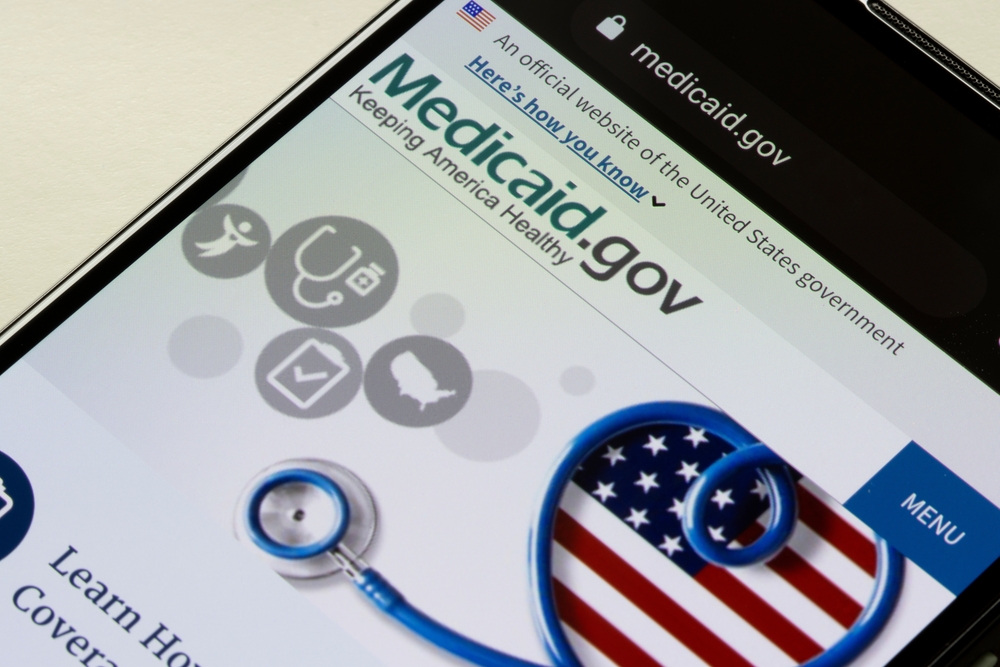
What to Do If You Lose Your Medicaid Coverage
 During the COVID-19 pandemic, states could not take away Medicaid coverage from any residents enrolled in this program. In recent months, however, this has been changing. If you are on Medicaid, be sure to take some time to understand whether your coverage may be at risk.
During the COVID-19 pandemic, states could not take away Medicaid coverage from any residents enrolled in this program. In recent months, however, this has been changing. If you are on Medicaid, be sure to take some time to understand whether your coverage may be at risk.
How the COVID-19 Public Health Emergency Affected Medicaid Enrollees
Enacted in March 2020, the Families First Coronavirus Response Act (FFCRA) prevented states from disenrolling Medicaid beneficiaries until the end of the COVID-19 Public Health Emergency. The act paused states’ review of the eligibility of Medicaid enrollees, a process known as Medicaid redetermination. The continuous enrollment provision increased coverage during the pandemic, reducing the rate of uninsured people. As a result of the act, no beneficiaries could lose coverage during the Public Health Emergency.
However, through the Consolidated Appropriations Act of 2023, Congress ended continuous enrollment on March 31, 2023. The federal COVID-19 Public Health Emergency declaration came to a close on May 11, 2023.
As states resume their Medicaid redetermination processes, they can now disenroll individuals who no longer meet Medicaid’s eligibility requirements. As a result, millions of people may lose health insurance coverage. Over the next year, between 7.8 million and 24.4 million people could lose their Medicaid coverage, the Kaiser Family Foundation estimates.
Many Americans were unaware of the potential risk of being dropped from Medicaid when the Public Health Emergency expired. One survey reveals that two-thirds of all Medicaid enrollees are not sure whether states could remove them from the program.
If you are unsure whether you will continue to receive Medicaid, you can contact Medicaid to review your enrollment status. Should your coverage end as a result of your state’s redetermination process, you may be able to purchase health insurance through the health insurance marketplace.
How to Know If You’re Still Eligible for Medicaid
During the redetermination process, your state evaluates your income, assets, residency, and other eligibility criteria for Medicaid. States legally must provide Medicaid coverage to low-income families, qualified pregnant women and children, and Supplemental Security Income (SSI) recipients. They may extend coverage to others as well, such as people receiving home and community-based services and foster children.
Because the COVID-19 Public Health Emergency lasted several years, some Medicaid enrollees have not undergone eligibility review since before 2020. Others, who may have joined Medicaid during the pandemic, have never been through the renewal process.
While redetermination began as early as April 2023 for people in some states, others may receive a redetermination notice in later months.
Policies vary by state. Some state Medicaid agencies may automatically renew your coverage. Other states may require you to take steps to verify your eligibility, including providing documentation.
Learn more about your eligibility by contacting your state Medicaid agency.
Has My State Started the Medicaid Redetermination Process?
With this online tracker, you can search by your state to find out when its Medicaid redetermination process began, how many people have been disenrolled so far, how many enrollees were determined to be no longer eligible, and more.
There is some concern among healthcare advocates that certain states are disenrolling individuals who should remain eligible. For instance, as of June 2023, data suggests that in states like Florida and Arkansas, hundreds of thousands of Medicaid recipients may have mistakenly lost their coverage due to procedural reasons.
Medicaid Renewal: Be Proactive
You may not yet have received any kind of notification regarding whether you remain eligible for Medicaid. However, there are steps you can take to help ensure your state Medicaid agency has the information it needs to evaluate your eligibility and to renew your coverage promptly.
- If you have moved or changed your phone number or email address, reach out to your Medicaid state agency to update your contact information.
- Each state will send out a letter to your mailing address regarding your coverage. Be sure to keep an eye out for this communication in your mailbox.
- You may be asked to fill out a Medicaid renewal form. If so, complete the form and return it as soon as possible.
Obtaining Health Insurance If You Lose Medicaid
If you are deemed ineligible for Medicaid coverage during the redetermination process in your state, you could obtain insurance via an employer or by purchasing an insurance policy on the Health Insurance Marketplace. State Medicaid agencies must assist as you transition to other coverage.
The Affordable Care Act established the Health Insurance Marketplace, where individuals and families may purchase health insurance plans. The Health Insurance Marketplace is available via Healthcare.gov.
You may enroll in insurance via Healthcare.gov during specific set timeframes. Each year, Open Enrollment is from November 1 to January 15. However, if you lose Medicaid coverage, you may be eligible for a Special Enrollment Period, which gives you 60 days to enroll in a Marketplace health plan.
To enroll in insurance, you must create an account and complete an application requesting information about your household and income. The application helps determine your eligibility for different health insurance programs.
After completing the application, you may view a list of available health insurance plans. You can compare these plans based on their coverage, premiums, deductibles, and other factors.
Premium tax credits can reduce the monthly cost of insurance premiums and lower out-of-pocket expenses. The amount of financial assistance depends on income and household size.
Consider Consulting an Elder Law Attorney
If you are concerned about the effect of the redetermination process on your Medicaid benefits, consider setting up a Medicaid Consultation with Attorney Logan M. Brown or Tim J. Larson. As elder law attorneys, they can help you understand the Medicaid process and if it is still the best fit for you. Contact our Wichita office at 316-830-5750 to make an appointment today.
We Care. We Listen. We Counsel.

